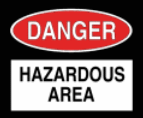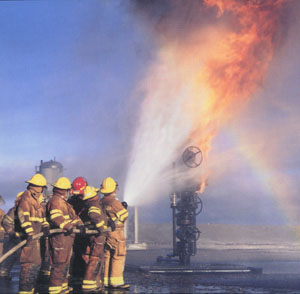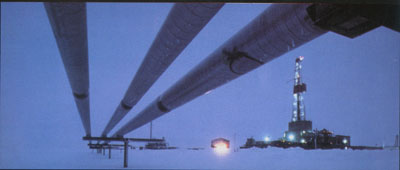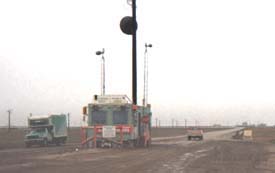
Prudhoe Bay can be a very dangerous place to work if you don't know what you're doing (and even if you do.) Safety is of paramount concern here, as there are a great number of hazards facing workers. To minimize these hazards, workers are required to participate in a safety meeting every morning with their immediate work unit before any work begins for the day. Additionally, other safety meetings are required weekly and monthly (the less frequent the meeting, the larger the audience.) The reason for the emphasis on safety is because of the wide variety of hazards that exist for oilfield workers:



